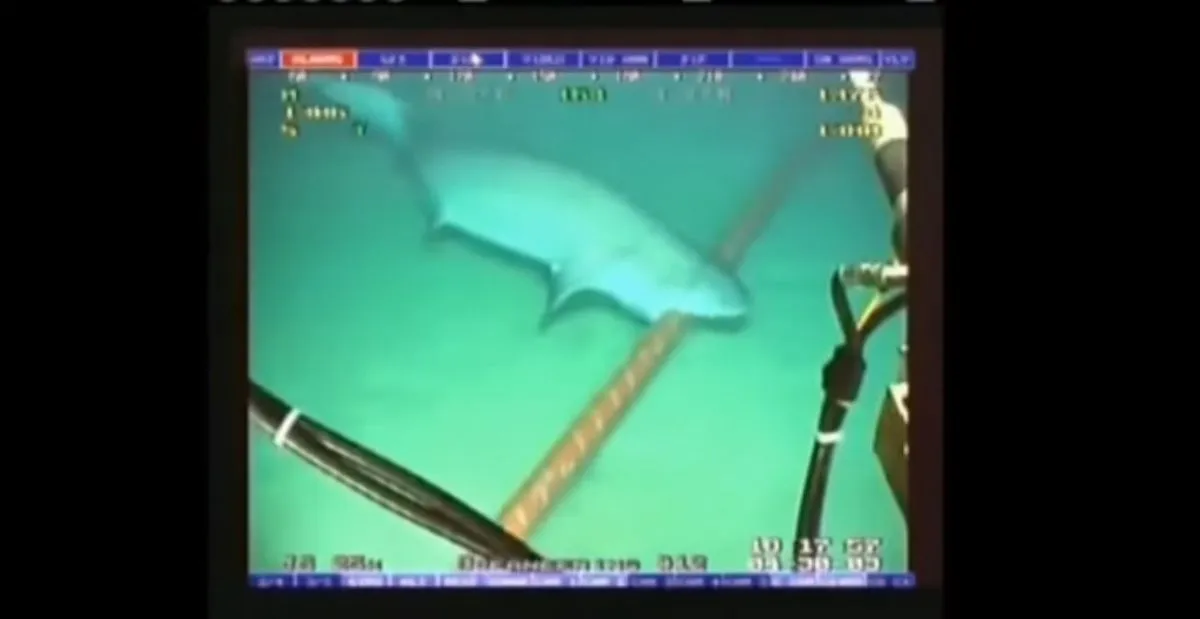While We’ve Been Sitting Here All Worried About Sharknados, The Sharks are Taking Down the Global Internet
We're gonna need a bigger global internet system.

The global internet is under attack. No, not from forces determined to repeal net neutrality, or Pepe bots hell bent on political disruption. This time, the attack is coming from where we least expect it: sharks. That’s right, while we’ve all been gazing skyward towards the heavens, chainsaws at the ready for impending sharknados, those crafty bastards have been waging a communications war right under our noses.
Now, Google is taking steps to protect their underwater cables by developing a kevlar-like material to protect against shark bites. But sharks nomming on cables is not a new occurrence. In the late 80’s, sharks were chomping down on fiber optic cables, disrupting service for voice and computer communications. AT&T even funded a marine research study to figure out why the sharks were so drawn to the cables.
Because this was the 80’s, the research study was not particularly animal friendly. It was reported that the researchers would drag sharks aboard the boat and then try to force feed the sharks cable samples, a move that seems incredibly dangerous, abusive, and frankly, stupid as hell. Now, many scientists speculate that the electrical current of the cables draws shark attacks because sharks can sense electromagnetic fields. The sharks, sensing the current, think that the cables are prey and attack them.
Some scientists also think that sharks are just curious and ready to nom on whatever crosses their path. Chris Lowe, who runs California State University, Long Beach’s, Shark Lab says, “If you had just a piece of plastic out there shaped like a cable, there’s a good chance they’d bite that too. Just a little bite is enough to get through the jacket, damage the fibers and then you’re screwed.”
This behavior does not bode well for Google’s new trans-Pacific cable system, which will connect the United States to Japan at speeds of up to 60 Tbps. And damage to these transoceanic lines can cause problems like widespread internet outages. And while new technological advancements to protect the cables are being developed, in the words of Jeff Goldblum in Jurassic Park, “nature, uh, finds a way.”
(via Slate, Wired, image: screengrab)
Want more stories like this? Become a subscriber and support the site!
—The Mary Sue has a strict comment policy that forbids, but is not limited to, personal insults toward anyone, hate speech, and trolling.—
Have a tip we should know? [email protected]
